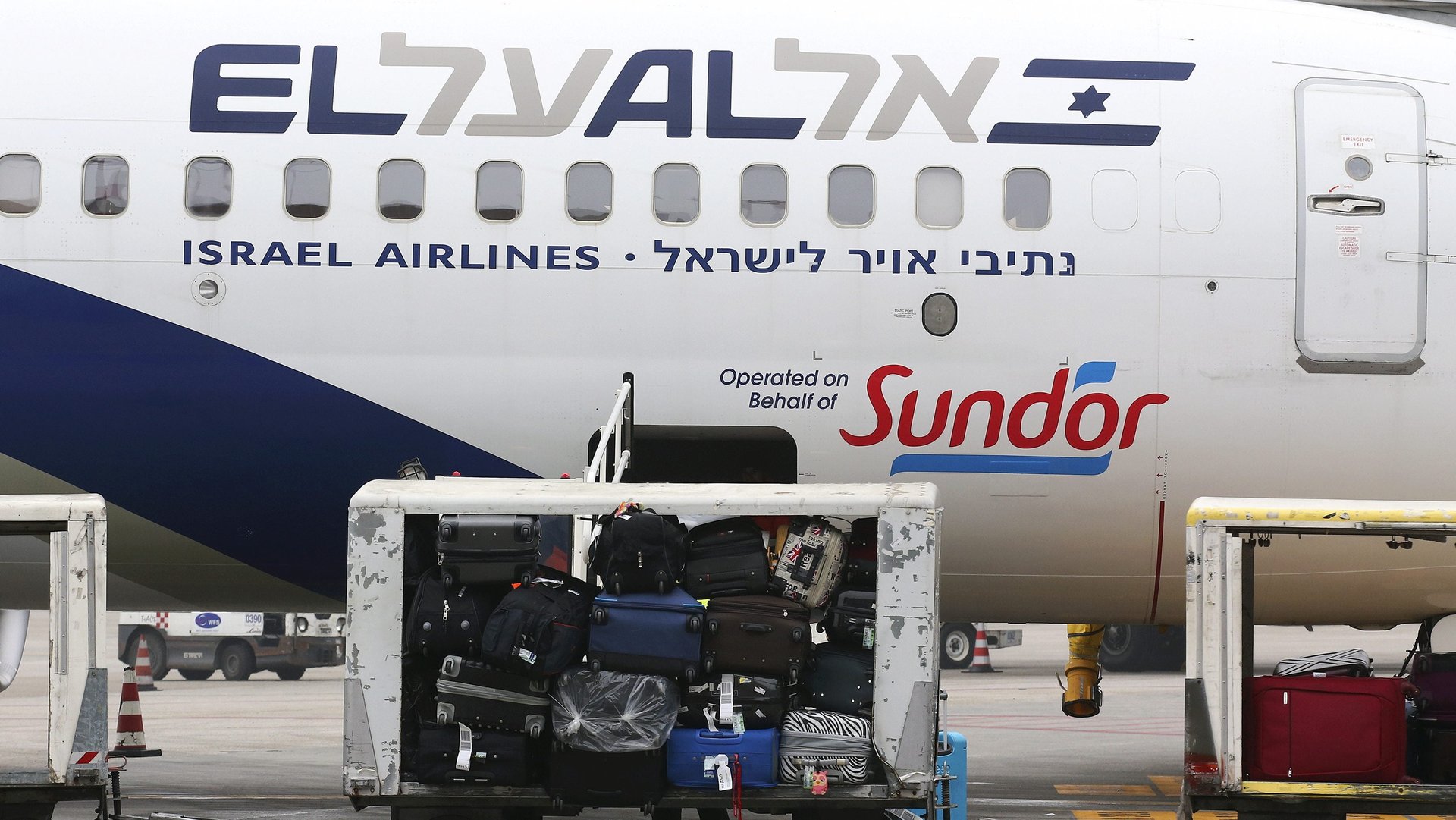Vanuatu National Travel and Israel’s state airline El Al will vote in Hong Kong’s rigged election
Thanks to a byzantine electoral system, the national airline of Israel, a Vanuatu-linked organization, and a maker of “chicken biscuits” will vote in the city’s first legislative election since the Umbrella Movement.


Thanks to a byzantine electoral system, the national airline of Israel, a Vanuatu-linked organization, and a maker of “chicken biscuits” will vote in the city’s first legislative election since the Umbrella Movement.
In the September 4th Legislative Council, or Legco, election, there’s drama in the opposition pro-democracy camp as younger and more radical parties challenge the the status quo, after the disappointment of the Occupy protests. But a lot has actually been decided already in terms of who gets to sit in the Legco chamber.
While half of the 70 seats in the chamber are directly elected by universal suffrage, known as geographical constituency seats, the other half are elected through so-called “functional constituencies,” returned by a mix of individual and corporate votes organized roughly by industry.
It’s a colonial arrangement that still weighs on Hong Kong’s democratization, critics say. “The colonial regime used to co-opt the business elite through the functional constituencies, which allowed them to get a seat in Legco,” said Ma Ngok, a professor of government and public administration at the Chinese University of Hong Kong.
The system continues to serve a purpose for Beijing, Ma added, by protecting the Beijing-leaning business sector’s interests. “The Chinese government sees [the functional constituencies] as an important buffer between itself and the pro-democracy legislators returned by universal suffrage,” he said.
The amount of legislative weight the functional constituency seats allocate to business interests is resented by many. “The functional constituency system is absolute evil, a corrupt bad system bursting with discrimination,” said Gladys Li, a senior lawyer in Hong Kong. “[It is] such a bad system that some allow foreign companies to actually take part in Hong Kong elections, regardless of nationality requirements.”
Nor are the names of the functional constituency voters transparent and easily available to the Hong Kong public. As no electronic copies are made public, Quartz was told to go to the Home Affairs Department office in the Central district to see physical copies of the voter lists. A reporter had to specifically state which functional constituency’s lists he wanted to see, and read the voter lists in front of a staff member. He was told that mobile phones, photography and note-taking were not allowed, so here’s a partial list of the most interesting voters, by memory:
Agriculture and Fisheries
- World’s Poultry Science Association, Hong Kong Branch
- Fishermen’s Recreation Clubs (of different districts)
Tourism
- Vanuatu National Travel
- Air Canada
- Qatar Airways
- El Al Israel Airlines
- Saudi Arabian Airlines
- Japan Airlines
- Pakistan International Airlines
Information Technology
- Senior Citizen Home Safety Association, which makes an emergency home alarm
Industrial (First seat)
- Hong Kong Economic Times
- Australian Chamber of Commerce
- French Chamber of Commerce and Industry
Industrial (Second seat)
- Casablanca, a bedding chain
- Catalo, a health food chain
- Comvita, a manuka honey maker
- King of Chicken Cake, which makes chicken-flavored biscuits
- King Bakery
Little is known about some of these companies, like Vanuatu National Travel, a Hong Kong-registered entity that bears the name of a tiny Pacific archipelago and says two of its three shareholders hold Vanuatu citizenship. Vanuatu is a popular option for wealthy Chinese investors looking to buy foreign citizenship.
“What is most flagrant is that the government itself can appoint the voters to the functional constituency seats,” said Li, “so basically the government has as many votes as it wants to make people vote for itself.” The government’s electoral office has the power to decide the eligibility of voters to each functional constituency.
What an enterprise actually does is not necessarily linked to where they vote, either. Hong Kong Economic Times, a newspaper, is a corporate voter for one of the Industrial seats. The same goes for King of Chicken Cake, a maker of a traditional Cantonese pastry called “chicken biscuits.”
What’s more, at least 10 of those seats are already allocated, as the candidates will be returned unopposed. In the Labour constituency, for example, all three of its seats are unchallenged.
And even if there is competition, it’s still much easier to win a functional constituency seat. Winning a geographical constituency seat could require winning more than 70,000 votes. In comparison, the Insurance functional constituency has a mere 134 voters and Transport has only 195.
Those who sit on a number of boards can vote multiple times—there actually is no limit to how many votes a businessperson can have. According to Ma, this explains why the business sector in Hong Kong tends to be conservative. “They have a system that protects them. Yet the legitimacy they acquire is not so large, since everybody is aware that the richer you are, the more you are able to obtain votes. There is a lot of popular resentment against the functional constituency system.”
Under the current arrangement, some interest groups are allowed to punch way above their weight. The Fisheries & Agriculture and the Industrial sectors, for example, are over-represented with a total of three seats, although they contribute just little over 1% to the city’s GDP, as compared to the 19% for the Import & Export sector, which holds only one seat. In a city that has very few peasants and fishermen still active, their voices are disproportionately heard.